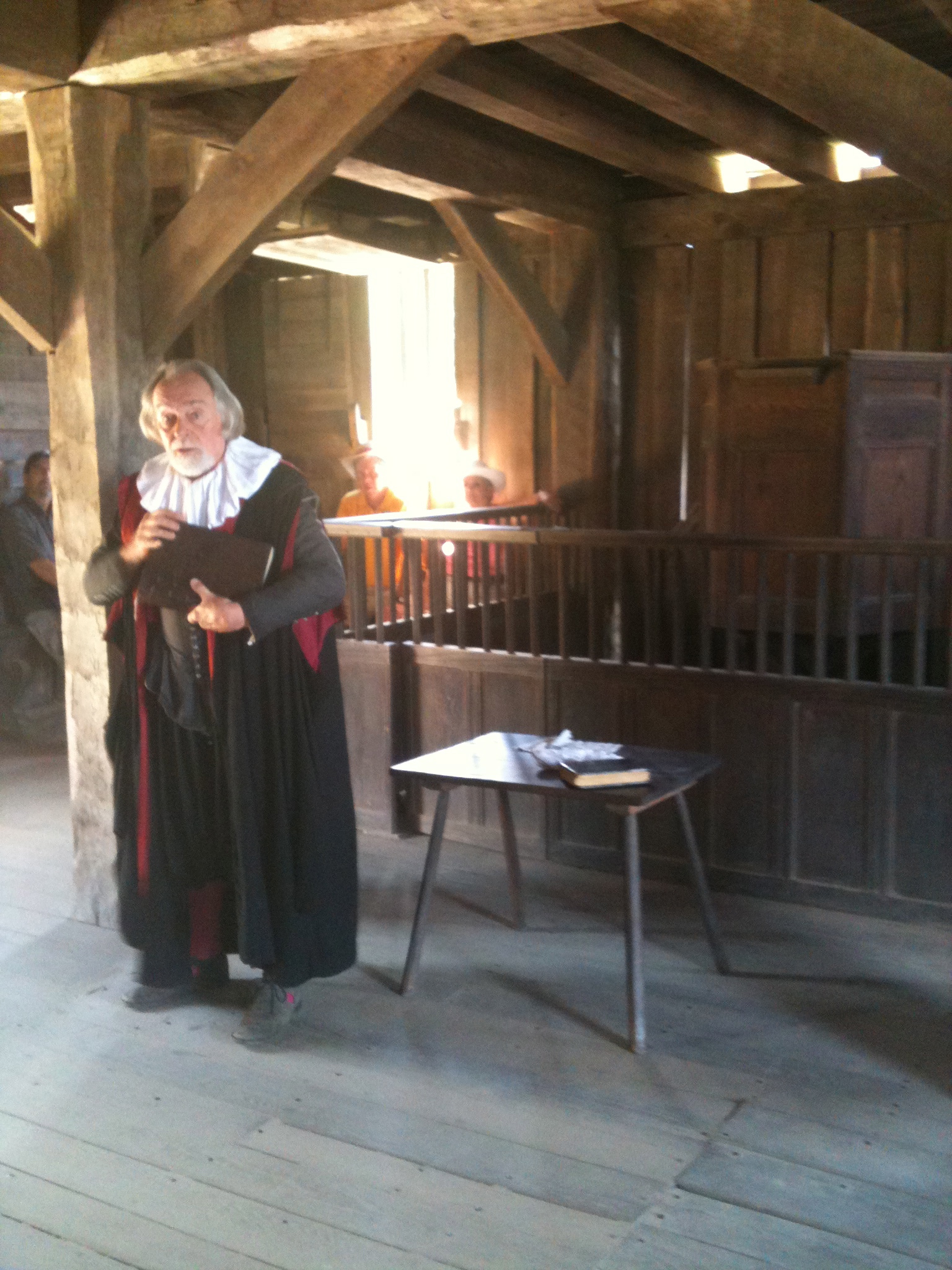How’d you spend your summer vacation? My family spent a week in Marshfield, Mass., a few weeks ahead of Hurricane Irene, when it was still idyllic and not fraught. We visited the quaint general store owned by TV/movie star and Second City veteran Steve Carrell (and managed by his sister-in-law).
We also went to an even more officious environment, Plimoth Plantation. I had a real education in period-conscious improv from the various folk who populate this “living history museum.” The denizens are dressed as Native American tribal members, immigrant British religious leaders and townsfolk of the 17th century.
One of the main performance crutches for these characters is ignorance. They have collectively mastered the blank stare. We asked one of the Native American women how long it would take to build one of the tents in their settlement. She responded with a flat dismissal of the question, explaining that the tribe they were representing at the village would have had no concept of time. She didn’t get into the cyclical concept of time, or any other sense which could translate the question into terms to which she could relate. She just didn’t seem to want to answer the question. When someone asked how she spend her own time (largely weaving, it appeared), she gave that questioner an earful as well. No time.
In the pilgrim settlement a hundred yards away from the Native American one, the villagers were banging drums and loudly proclaiming that it was time (yes!) for an oration by a respected clergyman. But first we conversed with a couple of women who were tending the communal bread oven. We bake ourselves, and knew that yeast would be a foreign concept to them, so asked how they prepared their sourdough. They got the gist of what I was asking, catching that “sourdough” must be what they knew as “sour paste.” But other questions were met with uniform blank stares.
The ballyhooed minister had the finest line to balance upon, improvisation-wise, since his was a discourse before an audience of dozens, followed by a question-and-answer period. He admirably skirted what to him would be unfamiliar subjects. When I asked if he’d had a choice of translations for the Bible he chose to use, or whether he read ancient languages, he seemed genuinely peeved by the insinuation that the word of God might have other interpretations. In any case, he didn’t crack. His grace at trying to grasp the odd new ideas thrown at him by this baseball-capped congregation was in keeping with the patience and forebearing of a man of the cloth.
Plus, in classic improv manner, he got the last laugh.
When a young boy, perhaps expecting a more stereotypical dialect than the nuanced European inflection this priest used, asked why the man didn’t speak “in a British accent.”
“If this is not a British accent,” the pained priest thundered, “I don’t know what it is!”

